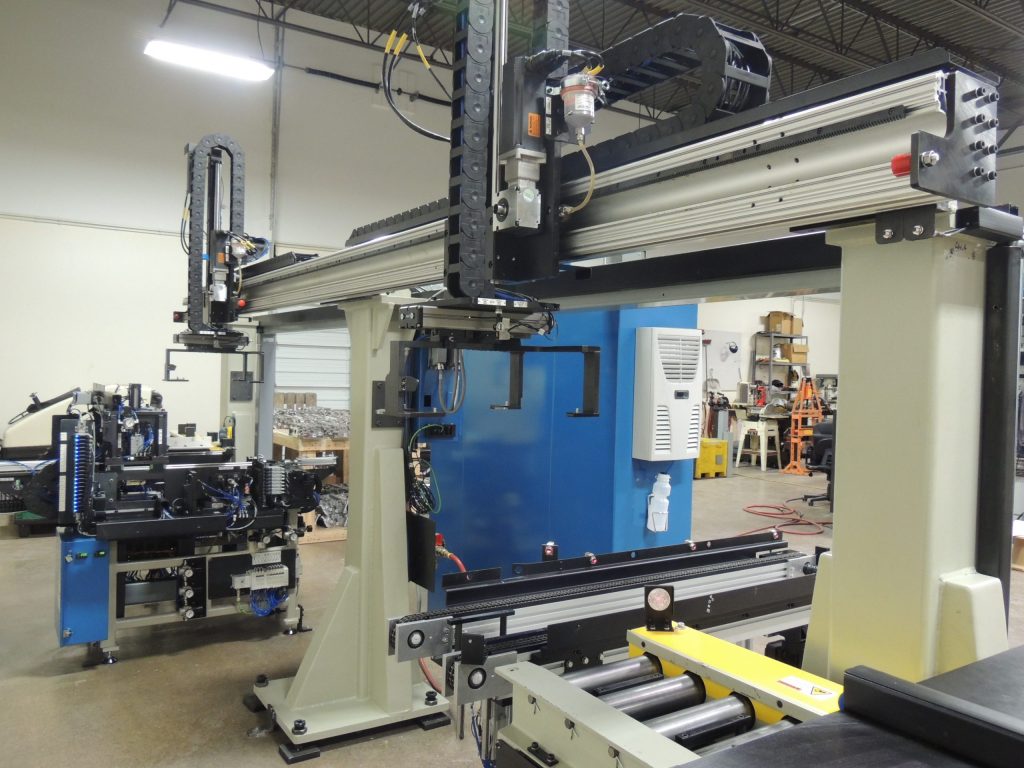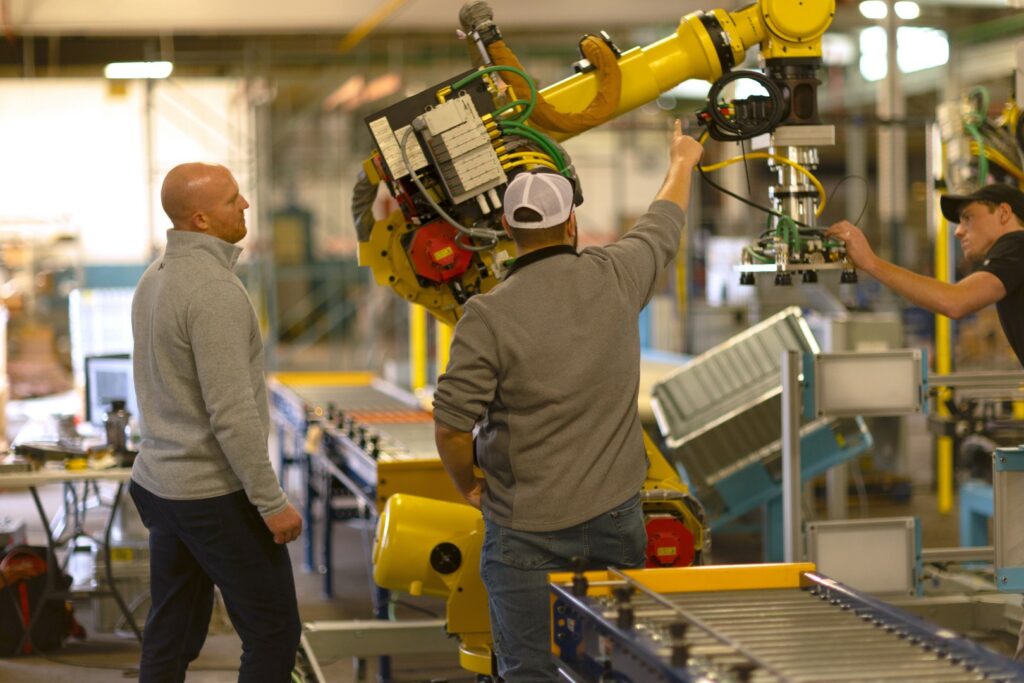Automating the EV Battery Assembly Process
How Assembly and Test Automation Helps Scale New & Existing Technologies for Battery Manufacturers Electric vehicle (EV) production presents numerous challenges, particularly when it comes to man

In today’s fast-paced manufacturing environment, implementing turnkey assembly lines is becoming necessary to stay competitive and meet demand. However, while turnkey manufacturing promises increased efficiency, reduced costs, and improved productivity, the road to successful integration isn’t without obstacles.
From upfront costs to training, adaptability, and changing requirements, companies have much to consider with turnkey automation. RōBEX helps manufacturers address the common hurdles faced when integrating turnkey solutions.
One of the primary challenges in implementing turnkey assembly lines is the initial investment required. Companies may be hesitant to commit substantial resources to equipment and setup without a guarantee of immediate returns. In addition, the potential disruption in production during the transition phase poses an additional concern for many manufacturers.
To mitigate this challenge, RōBEX works with companies to conduct comprehensive planning and feasibility studies as part of the design phase. Understanding the potential costs, return on investment, and impact on current operations and product quality can provide a clearer picture of the integration process, as well as the long-term benefits of turnkey systems. Additionally, exploring financing options or cost-sharing with suppliers and partners can help manage the initial investment.
Integrating a turnkey assembly line into an existing manufacturing facility without proper planning can result in integration and compatibility issues. The new equipment and processes may not seamlessly align with the current infrastructure, leading to disruptions and downtime.
RōBEX collaborates with you to anticipate and resolve any integration and compatibility issues that may arise. Our project managers ensure the new systems can seamlessly integrate with the existing infrastructure to minimize disruptions. If necessary, we will conduct thorough compatibility tests and mock implementations to identify and address potential issues before full deployment.
As turnkey manufacturing systems introduce new technology and processes, the training and transition of your existing workforce can be challenging. Employees may need to further their skills to operate and maintain the new equipment effectively. Others may need to be transitioned to other roles to complement the new equipment.

Investing in comprehensive training programs for the existing workforce is vital to overcome this challenge. RōBEX provides training and expertise on new equipment operation, maintenance, safety protocols, and documentation to ensure a smooth transition and help companies adapt. Additionally, involving employees in the planning and decision-making process can cultivate a sense of ownership and motivation to adapt to the change.
The dynamic nature of manufacturing often leads to changing product and production requirements, which can pose a challenge for turnkey assembly lines. Adapting to new product designs or variations may be challenging with existing setups, leading to delays and inefficiencies.
Implementing turnkey solutions incrementally can provide flexibility in adapting to changing requirements. By testing the assembly line with pilot projects or smaller production runs, companies can identify areas for improvement and make necessary modifications without disrupting the entire manufacturing process. Building a modular and flexible assembly line design can also facilitate easier reconfiguration for different product variations.
Maintaining quality control and managing errors in turnkey manufacturing processes is essential for ensuring the efficiency and reliability of operations. Identifying and rectifying errors in real time can be challenging, particularly with new automated systems.
Implementing robust quality control systems and real-time error monitoring tools can help turnkey manufacturers manage QC and error issues. Continuous evaluation and improvement through data analysis and feedback loops can drive enhancements in the assembly line’s performance. Additionally, creating a culture of accountability and responsibility for quality assurance among the workforce can further strengthen QC measures.
Automation offers immense potential for streamlining custom manufacturing processes. While their implementation comes with its own set of challenges, companies can successfully overcome these obstacles and unlock the full benefits of turnkey manufacturing.
Discover how RōBEX can help you implement a strategic and proactive approach to navigate the challenges and ensure a smooth transition toward enhanced efficiency and productivity in the manufacturing industry with our turnkey services–download our infographic today!
AUTHOR
Brandon White
DATE
January 31, 2024
Start Designing Your System Today
Get in touch with a RōBEX engineering design consultant today to start outlining a new solution to your production program.
How Assembly and Test Automation Helps Scale New & Existing Technologies for Battery Manufacturers Electric vehicle (EV) production presents numerous challenges, particularly when it comes to man
Robotic Assembly Systems Offer Incredible Manufacturing Automation Solutions for the Automotive Industry Automation is rapidly changing the automotive industry, making it more cost-effective and prod
Everything You Need to Know When Implementing an Automated Assembly Process When a company decides to invest in automation, it is making a big investment. This means that by the time manufacturing an
RōBEX
1745 Indian Wood Cr
Suite 210
Maumee, OH 43537
© 2024 RōBEX – Industrial Automation, Metrology and Manufacturing Systems Integration. All Rights Reserved